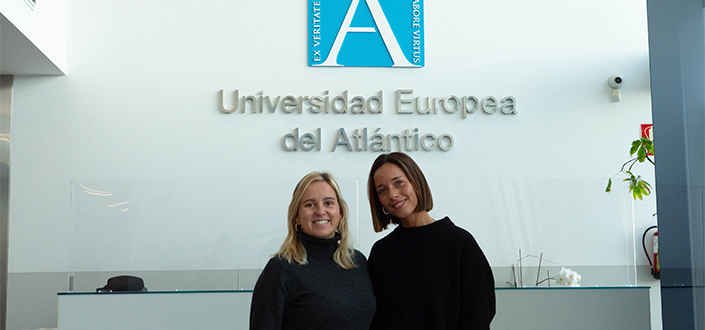The (Universidad Europea del Atlantico) (European University of the Atlantic) (UNEATLANTICO) joins, once again, the movement for the International Day for the Elimination of Violence against Women, which takes place every 25 November. This time with an interview to the teachers of the Faculty of Health Sciences, Isabel Diego and Sara Morales.
This date is celebrated annually to denounce violence against women around the world and to call for policies in all countries to eradicate it. According to the United Nations (UN), the origin of the commemoration dates back to 1981 and was made official in 1999 to raise awareness about violence against women and girls around the world.
The Organic Law 1 on Comprehensive Protection Measures against Gender-based Violence defines gender violence as that «manifestation of discrimination, inequality and power relations over women». It is estimated that one in three women has experienced violence at least once in her life, and that this can be presented in different ways, for example physically, sexually, psychologically, economically or culturally, among others.
UNEATLANTICO, in order to transmit this reflection to the university community, has interviewed the teachers of the area of Psychology, Isabel Diego and Sara Morales, to know the emotional and psychological consequences in women and girls at different stages of their lives (childhood, adolescence, adulthood and old age), after having suffered an act of violence.
In the interview, teacher Morales comments that violence against women manifests itself differently according to the stage of life. Explains that, in young women, aggression is usually more active and visible, expressed through harmful behavior. In older women, on the other hand, violence most often takes the form of neglect or selflessness, more subtle but equally harmful forms of abuse.
Morales adds that today, 25 November, there is also talk of digital machista violence, a phenomenon that continues to grow little by little. From the field of psychology, it calls on the whole society to inform about this issue, and in this way work together to improve the situation.
Teacher Diego spoke about the ways in which violence against women can manifest itself. Mainly focused on the signs that a teenager or an adult woman may show after having suffered or being subjected to violence. Finally, the teacher focuses on violence against women during old age and how it changes but still exists.+
In UNEATLANTICO we reaffirm that #NOHAYEXCUSE for violence against women.
Listen to the full interview with our teachers Isabel Diego and Sara Morales.


